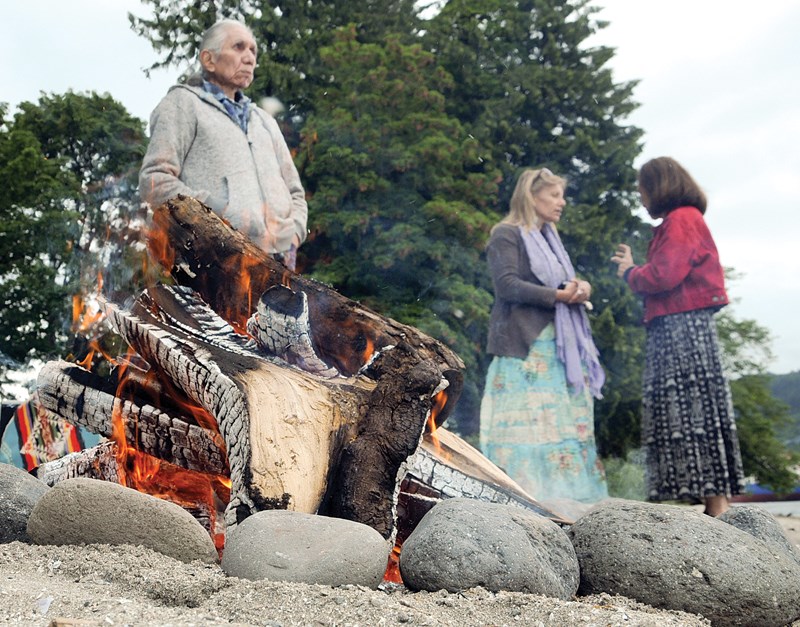The Tsleil-Waututh Nation has filed another legal challenge in a bid to halt Kinder Morgan’s Trans Mountain pipeline to Burrard Inlet.
The North Vancouver First Nation launched a second legal action this week against the National Energy Board, the federal government and Trans Mountain, arguing the conditional approval granted by the NEB in May was faulty and illegal.
It’s the third new lawsuit Trans Mountain has been slapped with in the last two weeks, with other suits filed by the City of Vancouver and Squamish Nation. Leaders of the three governments travelled to Ottawa together in early June to lobby federal ministers against the project.
The latest suit asks the federal court of appeal to quash the NEB’s final report and recommendations because, among other reasons, it did not take into account marine shipping risks or consider the Tsleil-Waututh Nation’s own assessment, which concluded the project would be an unacceptable risk.
Tsleil-Waututh Nation is still awaiting a ruling on a suit it filed in 2014 arguing the Crown acted unconstitutionally by not consulting with the nation while setting up the NEB process. If the court rules in their favour, it may send the entire project and approval process back to the drawing board, something Rueben George, manager with the Tsleil-Waututh’s Sacred Trust Initiative, is confident of.
“At first we were suing them because they didn’t consult at all and now this court case is about the flaws that (the process) did have,” he said.
With the price of clean energy falling, pipelines will soon be obsolete, he added.
“It doesn’t serve us Canadians. We take all the risk,” George said. “We’re stepping ahead as First Nations saying ‘No, we don’t want it.’”
Despite likely being eligible for royalty payments or benefits, the nation has instead opted to go to great expense to stop any pipeline expansion, George said.
“This is really important. This is super important. Money would help my people out of poverty. Money would, but we can’t put an expense on what we’ve been living in harmony with for thousands of years – our lands and our waters,” he said.
“We’re not a rich nation by any means but we spend our resources in stopping this because we know what it means to us. I believe Canadians would make the same choice when they know the true facts of what’s going on.”
Ali Hounsell, spokeswoman for Trans Mountain, issued a statement in response.
“We understand these groups have filed applications with the Federal Court of Appeal. We are currently reviewing the applications and will be responding more fully through the court process,” it read.



